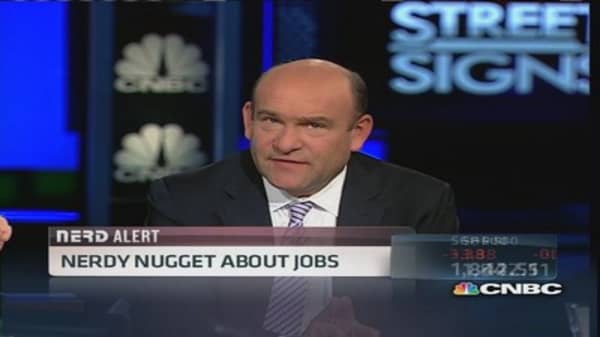The rise in quits is being driven, in part, by a rise in the number of job openings, which are now more plentiful than any time since 2008, according to the so-called Job Openings and Labor Turnover Survey, or JOLTS report, released on Tuesday for December. Roughly 2.4 million employees are pulling up stakes each month, while the number of monthly open jobs has hit 4 million.
The increasing numbers show the economy getting stronger, the theory goes, because workers are getting confident enough to take on the risk of changing jobs—or leaving the workforce altogether. (Earlier this month, one woman felt confident enough to break the news to her boss in a SuperBowl ad, but the Bureau of Labor Statistics doesn't break out how you give notice.)
(Read more: US economy may be stuck in slow lane for long run)
The rise in unfilled job openings also means employers are having a harder time finding qualified candidates, which is usually a sign they'll have to start offering higher wages to fill those jobs.
That could help break the long streak of stalled growth in wages, which have more or less flat-lined since the Great Recession began. Higher wages help boost consumer spending, which spurs demand for goods and services, which in turn leads to more hiring. And the virtuous circle keeps turning.
But the story told by the JOLTS data isn't entirely good news.
For one thing, while more workers are quitting, employers haven't picked up the pace of job creation as quickly. Four years after job creation bottomed after the Great Recession, the pace of hiring and the number of job openings are still well below the same point in the recovery from the 2001 recession.
(Read more: Stagnation by design)
Many of the jobs being created demand workers with specialized or advanced skills that companies are having a hard time finding. Those who don't qualify are having an even harder time finding work.






